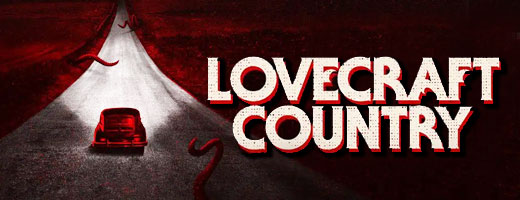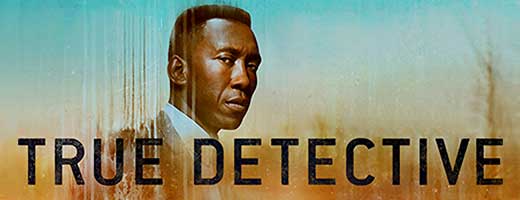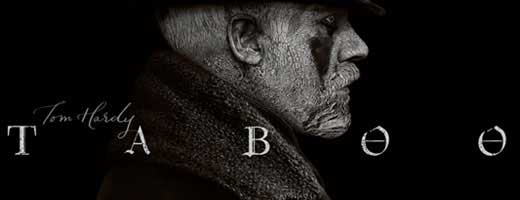Westworld, Free Will, And Determinism

Have a Theory? Share It Now!
I don’t have a mind-blowing theory to discuss with you today linking different plot points together, but I have been pondering various philosophical themes that I’ve noticed reoccurring throughout this season of Westworld that I hope you will enjoy reading. I’m going to be discussing abuse in this email, so I understand if you don’t want to read this on air or post it to your website. But I do hope you enjoy reading my take on this season, and I hope it gives you all something to think about!
The topic of free will has been brought up throughout this season of Westworld now that the hosts have consciousness. Free will is extremely complex, and it has strong definitions based on certain religious or philosophical backgrounds. I’m merely an armchair philosopher with a passing interest. I haven’t studied philosophy in school, so apologies in advance that I’m not going to give this topic the justice it deserves. Nevertheless, I’m very interested in it, and I don’t think you could discuss human consciousness without exploring the idea of free will.
I remember Gene mentioning on a past episode how most of what we do throughout the day isn’t our own free will, and I completely agree with this notion. I imagine the four of you have a similar day to day life as my own. You wake up at a time that you don’t necessarily want to be awake by. You go to a job that you don’t hate, but it’s not the first thing you would with your time if you completely controlled the reigns. You carry along with your everyday responsibilities regardless of how mundane they are. Of course, life would be complete and utter chaos if we didn’t have these daily frameworks mapped out for us and we did each and every little thing we wanted to do that our free will grants us. But I come from the understanding that we are a lot more restricted with our actions than just the everyday tasks that we revolve our lives around.
The opposite end of the spectrum of free will is this philosophical theory called, “determinism.” Determinism is essentially a theory based on cause and effect. All of our life events and even moral choices are the result of previous causes and indeterminate factors out of our control. People don’t just wake up one day and decide to be evil or decide to be a good person. There are various things that have happened to us or within our lives that will affect us and our actions for the rest of our existence. Therefore, under this theory, we have no free will. Everything is determined by what has happened previously.
This is especially true with the hosts. Now, I don’t believe that this is some revolutionary conclusion that the season will end on or even address for that matter. A philosophical theory isn’t a groundbreaking twist that Westworld would end on, but I do believe that it explains some key components of what has happened and why the hosts act the way that they do with their newfound “free will.”
Let’s look at Delores and the effects of trauma for example. How did a sweet, optimistic daughter of a wholesome rancher end up becoming the death bringer? It seems pretty out of character of her and would probably lead people to believe that she has free will now. She is, however, the only host that we have seen be affected by sexual trauma. The Man in Black has been sexually abusing her for decades now. I’m sure the other hosts in the series have experienced this to some degree, but we don’t have any proof of it. The trauma that other hosts have experienced revolves around death mostly. Maeve losing her daughter and being killed, Teddy being murdered countless times, Bernard losing his son to an illness, etc. Delores also has trauma revolving around death of the loved ones in her life, but she has also been sexually abused for decades on top of that.
Sexual trauma effects people in different ways than death does. Both have their own unique effects to various degrees. It’s no secret that many serial killers and criminals have a history of being abused in multiple ways. Abuse has everlasting effects, especially when not dealt with in a healthy way. Since Delores doesn’t have a licensed therapist and supportive group at her disposal to help her deal with her trauma, she is dealing with it through her violent tendencies. I believe that Delores and her actions are entirely based on the trauma she has experienced, and her actions have nothing to do with her free will.
Dr. Ford is aware of this idea, I believe. While the hosts are remembering all the horrible things that have happened to them, Dr. Ford understands that this will have an effect on their actions going forward. This is why Ford claimed that he knew Delores would kill him, regardless of her “free will.” Delores is dealing with her trauma in the only way she knows how.
I believe that this is the only reason why Ford has given the hosts the reigns of their own lives going forward. He understands that they truly don’t have control over what happens after they became conscious. He created them, and he understands them from the very roots of their being. Ford knows what they’re going to do going forward based on their past experiences. He knew that Delores would kill him, and he knows that Bernard will always listen to him. Bernard isn’t experiencing Ford’s narrative telling him what to do. Ford’s authority and wishes are simply important to Bernard, and they always will be. That’s just who he is.
This also relates to the idea of the different ways the hosts reach enlightenment. Delores gained consciousness through violence, and she continues to use violence as a way to gain the things that she wants. Akecheta does the opposite. He has lost the love of his life, but as far as we know, he hasn’t experienced too many violent or traumatic experiences. He managed to go 10 years without being killed, so I think that speaks to the way he views his circumstances and how he carries on with his actions going forward. He seeks to protect those around him rather than bring violence. Again, I believe that this is entirely due to the events that have happened to him rather than him deciding for himself to be this way.
Thank you so much for reading and thank you so much for all that you do in the podcast community! I’ve loved this season of Shat on TV so much, and I’m sad that it’s coming to an end. I hope you all enjoy the rest of the season!
Sincerely,
Mallika
P.S. Big D, thank you for your service!
Subscribe Now
- Android: https://shatpod.com/tv/westworld-android
- Apple/iTunes: https://shatpod.com/tv/westworld-itunes
Help Support the Podcast
- Contact Us: https://www.shatpod.com/contact
- Commission Movie: https://www.shatpod.com/support
- Support with Paypal: https://www.shatpod.com/paypal
- Support With Venmo: https://www.shatpod.com/venmo
- Shop Merchandise: https://www.shatpod.com/shop
- Shop Amazon With Our Affiliate Link – https://www.amazon.com/?tag=shatmovies-20
- Theme Song – “The Ecstasy Of Gold” (Hip Hop Instrumental Version) by Dj 2 Bad
- Outro Music – By Simon Eric Haywood







Beautifully written, Mallika.
Seeing revenge as someone “finally taking control” certainly is nearsighted, and we make that mistake all the time. Action movies, in particular, fall into this trap. Wouldn’t the TRULY free individual evaluate his or her situation and go with the most beneficial option, rather than plunge headfirst into danger and violence?
Dolores/Wyatt is dealing with events and history strictly in the way she’s been equipped to. The world has infinite options, and she only sees one. Doesn’t sound very free to me.